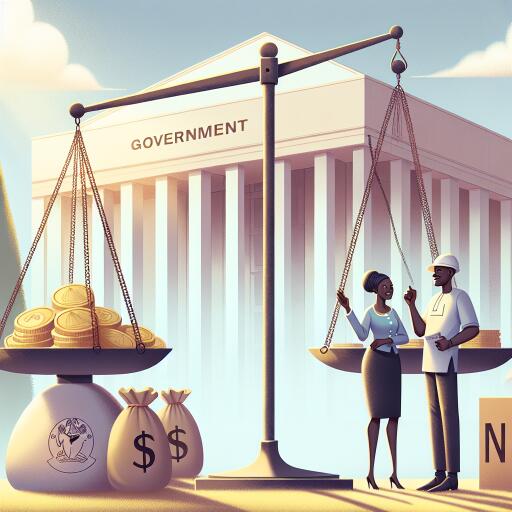Why Nigerian Government Should Consider N1m as Minimum Wage – NLC
In a recent interview, the National Labour Congress (NLC) has put forward a proposition urging the Nigerian Federal Government to consider setting the minimum wage at N1 million. This statement was made by NLC President, Joe Ajaero, who emphasized the necessity for the wage adjustment to mirror the current economic conditions and other economic indicators affecting the country.
The recommendation comes against the backdrop of the Nigerian economy’s struggles, including a rapidly depreciating naira against the dollar and an inflation rate that continues to climb. Ajaero noted that these factors make the demand for a higher minimum wage both inevitable and urgent. He remarked that the initial proposal for a N200,000 minimum wage has become untenable due to the soaring prices of food items and the overall inflationary pressure gripping the nation’s economy.
Ajaero detailed the financial burdens facing ordinary Nigerians, pointing out the stark increase in the cost of essential goods. “You will remember that by the time we contemplated N200,000, the exchange rate was about N900. Today, the exchange rate is about N1,400 or even more. Those are the issues that determine the demand, and they are equally affecting the cost of living,” he explained. The high cost of living index, which examines the cost of essential items like food, was highlighted as a key factor in determining the proposed minimum wage.
With the price of basic commodities, such as a bag of rice, skyrocketing to between N60,000 and N70,000, Ajaero argued that the new minimum wage should be sufficient to cover not just daily sustenance but also other necessary expenses for a decent living. This includes transportation costs, which for many, might not be covered by a weekly wage under the current minimum wage structure.
The call for a revised minimum wage comes amidst ongoing discussions with the Federal Government, prompted by a nationwide strike notice issued by the NLC and Trade Union Congress (TUC) last week. This planned action reflects the broader discontent over the country’s deteriorating economic situation. In response, President Bola Ahmed Tinubu’s administration has appealed to workers to refrain from striking, assuring that efforts are being made to address the economic challenges faced by the nation.
This development sheds light on the continued efforts by labor unions to negotiate better living standards for workers through wage adjustments that account for inflation and other economic hardships. As discussions unfold, it remains to be seen how the government will respond to these demands, and what measures will be taken to address the economic conditions prompting such proposals.
